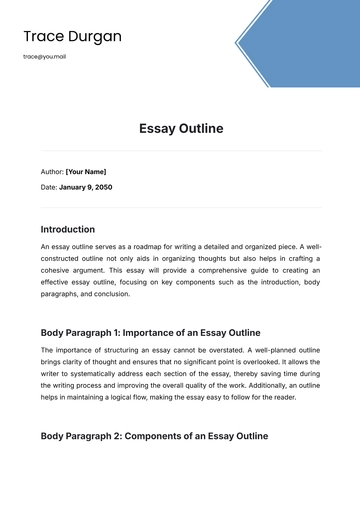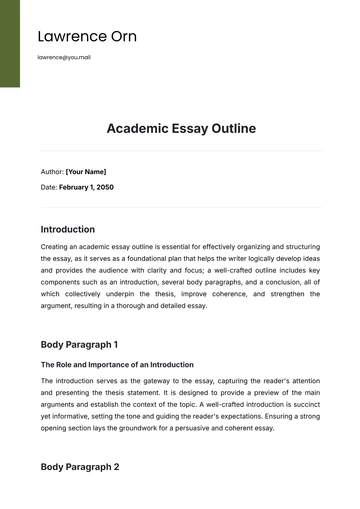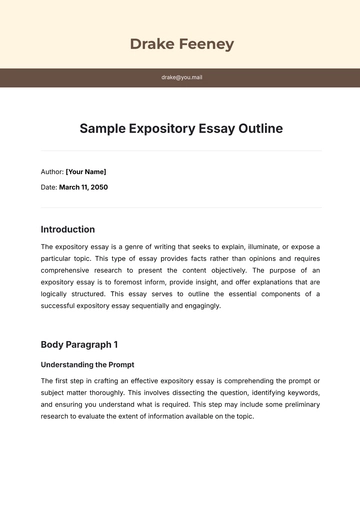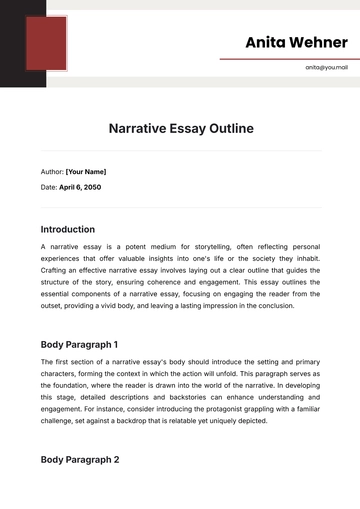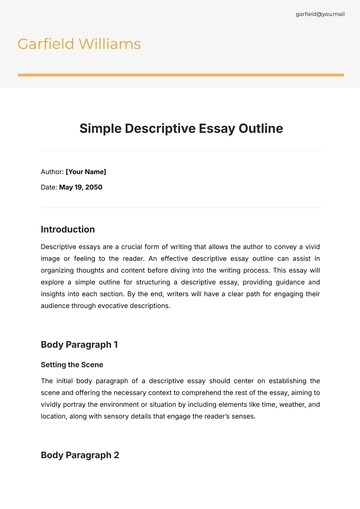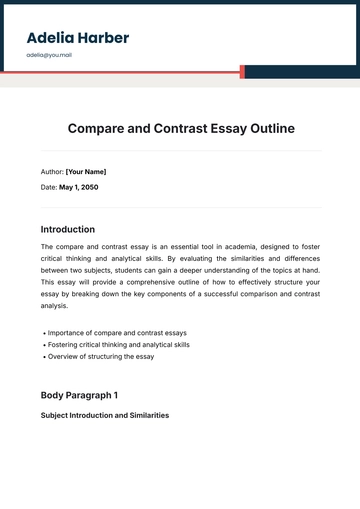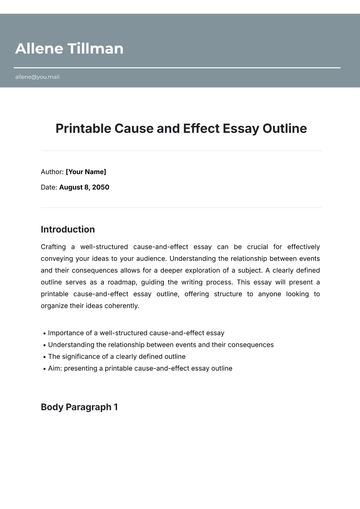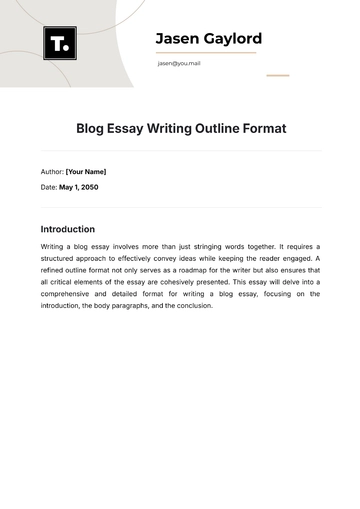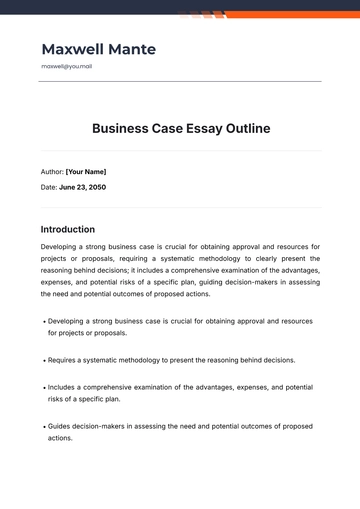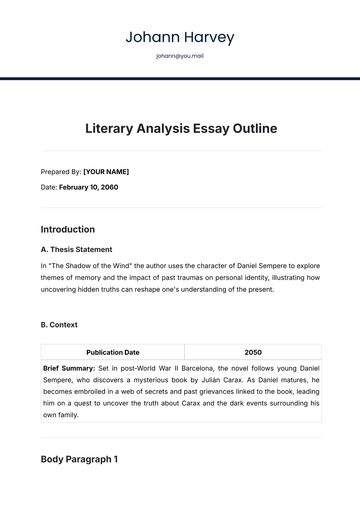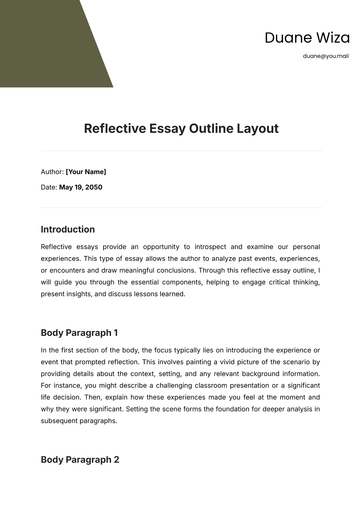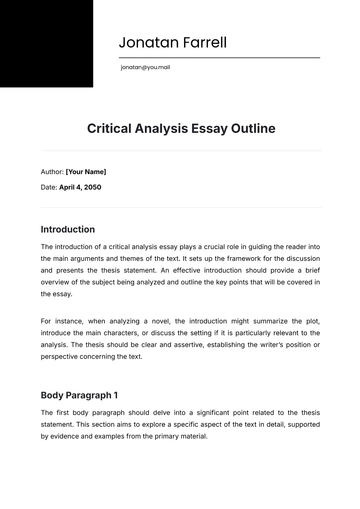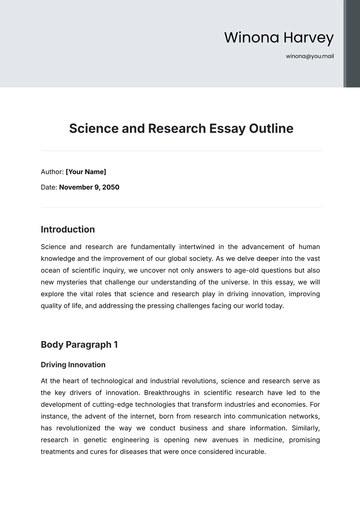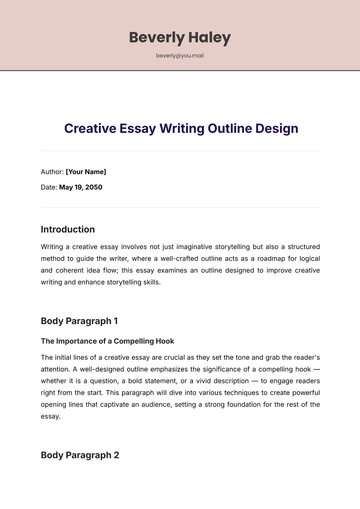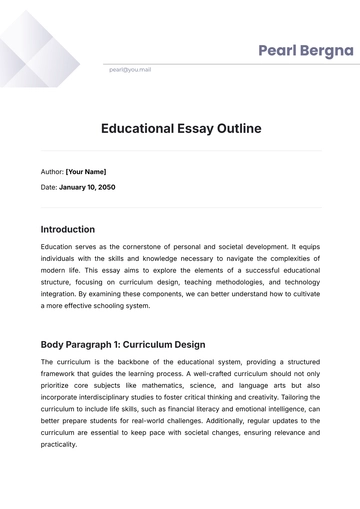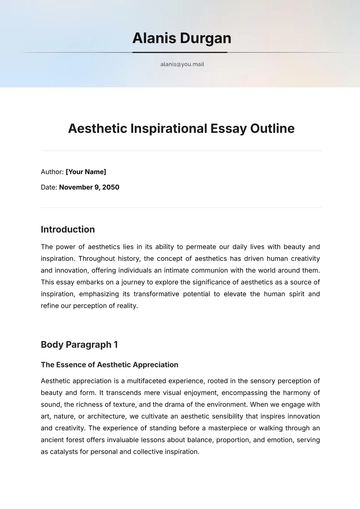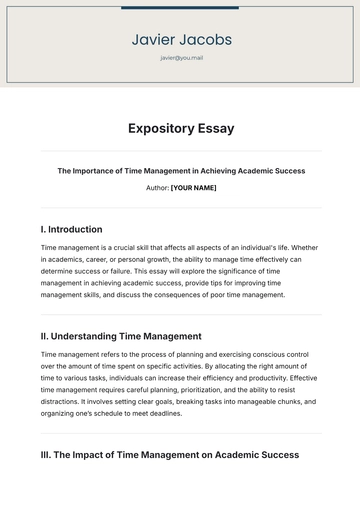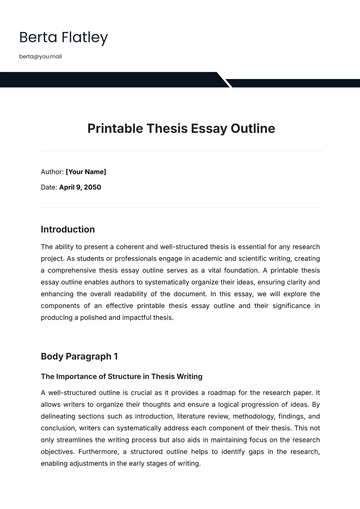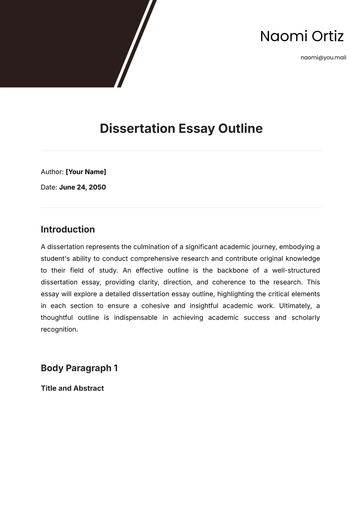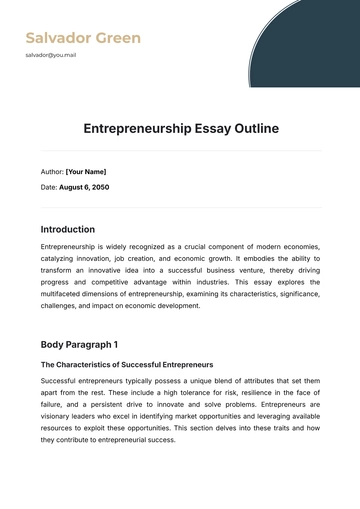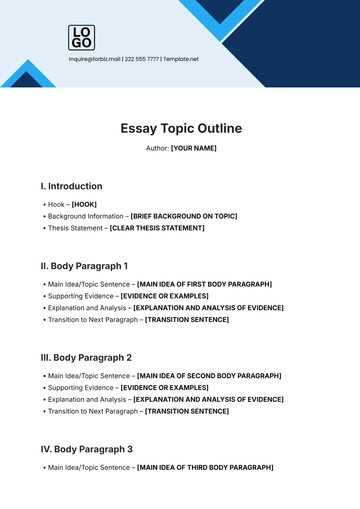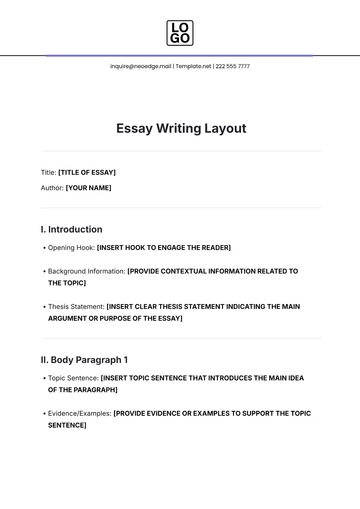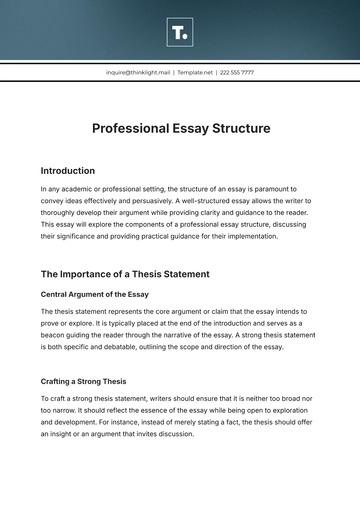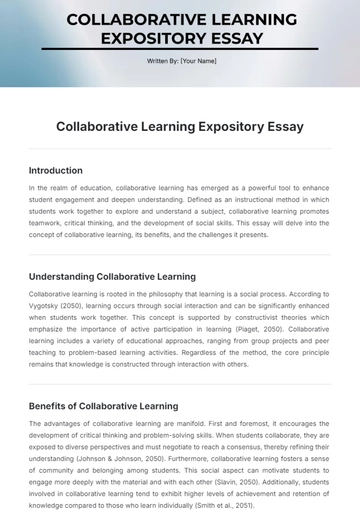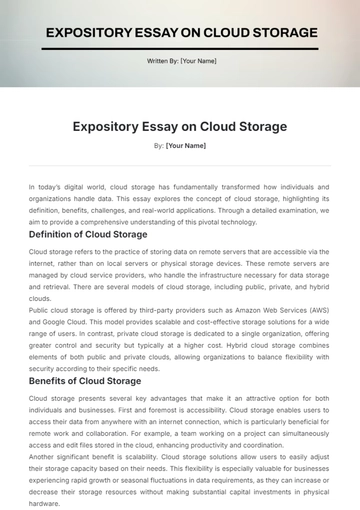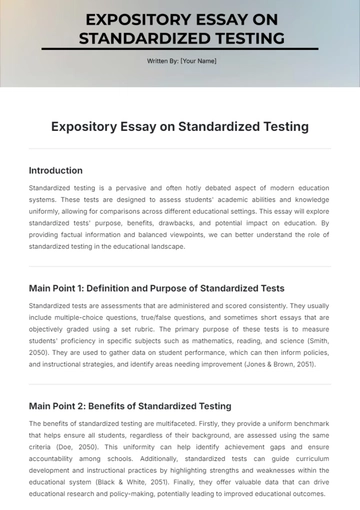Free Childhood Education Expository Essay
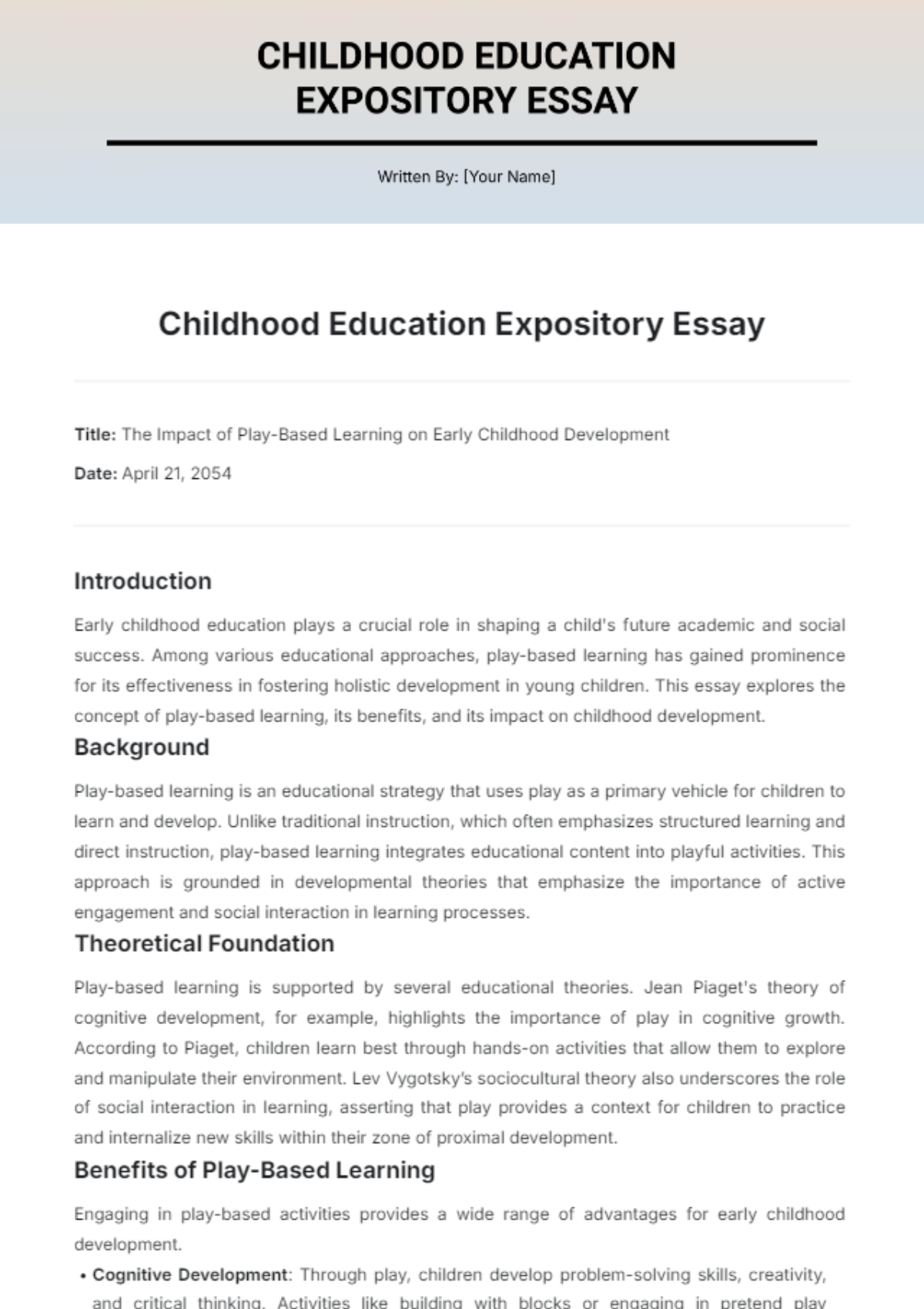
Title: The Impact of Play-Based Learning on Early Childhood Development
Date: April 21, 2054
Introduction
Early childhood education plays a crucial role in shaping a child's future academic and social success. Among various educational approaches, play-based learning has gained prominence for its effectiveness in fostering holistic development in young children. This essay explores the concept of play-based learning, its benefits, and its impact on childhood development.
Background
Play-based learning is an educational strategy that uses play as a primary vehicle for children to learn and develop. Unlike traditional instruction, which often emphasizes structured learning and direct instruction, play-based learning integrates educational content into playful activities. This approach is grounded in developmental theories that emphasize the importance of active engagement and social interaction in learning processes.
Theoretical Foundation
Play-based learning is supported by several educational theories. Jean Piaget's theory of cognitive development, for example, highlights the importance of play in cognitive growth. According to Piaget, children learn best through hands-on activities that allow them to explore and manipulate their environment. Lev Vygotsky’s sociocultural theory also underscores the role of social interaction in learning, asserting that play provides a context for children to practice and internalize new skills within their zone of proximal development.
Benefits of Play-Based Learning
Engaging in play-based activities provides a wide range of advantages for early childhood development.
Cognitive Development: Through play, children develop problem-solving skills, creativity, and critical thinking. Activities like building with blocks or engaging in pretend play stimulate cognitive processes and help children understand abstract concepts.
Social Skills: Play-based learning fosters social interaction and cooperation. Group activities require children to negotiate, share, and resolve conflicts, which enhances their social skills and emotional intelligence.
Language Development: Interactive play promotes language development by providing opportunities for children to use and understand new vocabulary in context. Storytelling, role-playing, and conversations during play help expand children’s language skills.
Emotional Well-being: Play allows children to express their emotions and deal with stress in a safe environment. It also boosts self-esteem as children experience success and mastery in various play activities.
Implementation in the Classroom
Effective implementation of play-based learning requires a well-designed learning environment and a thoughtful approach by educators. Classrooms should be organized with various activity centers that encourage exploration and creativity. Teachers play a critical role in facilitating play, guiding activities, and providing support without dictating the direction of play. Incorporating elements of structured and unstructured play helps balance educational objectives with children’s natural inclinations.
Conclusion
Play-based learning is a powerful approach in early childhood education that significantly impacts children’s cognitive, social, language, and emotional development. By creating opportunities for children to learn through play, educators can foster a more engaging and effective learning environment. As educational research continues to support the benefits of this approach, early childhood educators need to integrate play-based learning into their teaching practices to support the holistic development of young learners.
References
Piaget, J. (2050). The Origins of Intelligence in Children. International Universities Press.
Vygotsky, L. S. (2051). Mind in Society: The Development of Higher Psychological Processes. Harvard University Press.
National Association for the Education of Young Children (NAEYC). (2052). Developmentally Appropriate Practice in Early Childhood Programs Serving Children from Birth Through Age 8. NAEYC.
- 100% Customizable, free editor
- Access 1 Million+ Templates, photo’s & graphics
- Download or share as a template
- Click and replace photos, graphics, text, backgrounds
- Resize, crop, AI write & more
- Access advanced editor
Write engaging essays on early education with Template.net’s Childhood Education Expository Essay Template. This editable and customizable template is tailored for discussing key topics in childhood education. Easily editable in our AI Editor Tool, it offers a convenient solution for crafting well-structured and professional essays. Perfect for educators, students, or parents, this template allows you to focus on critical issues
